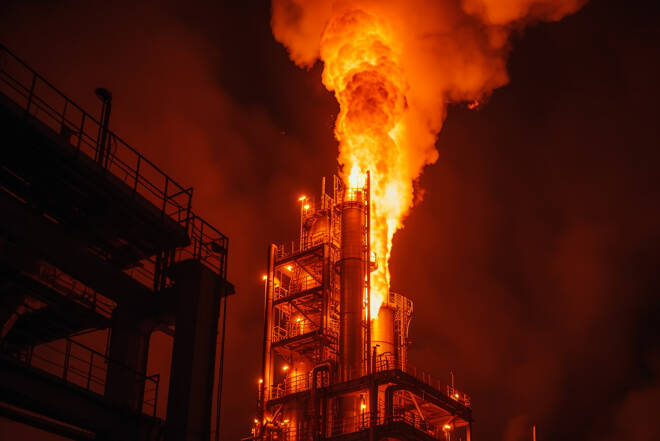Advertisement
Advertisement
Natural Gas News: New Bearish Weather Forecast Capping Gains
By:
Key Points:
- Minor price movements amid stable market conditions.
- Cooler weather spikes short-term demand, but warmer temps are coming.
- EIA predicts strong export growth and production over the long-run.
Current State of U.S. Natural Gas Markets
The U.S. natural gas market is currently experiencing a period of near stability with slight price movements as it responds to varying demand forecasts and production outlooks. Recent weather patterns have induced some volatility, with cooler than normal temperatures spiking demand in key regions across the country.
At 11:22 GMT, Natural Gas Futures are trading $1.748, down $0.004 or -0.23%.
Weather Influence on Demand
A weather system impacting the Great Lakes and Northeast has brought lower temperatures, driving demand higher than usual for this time of year. Forecasts from NatGasWeather indicate that temperatures will rise across most of the U.S. later in the month, with conditions stabilizing in the 60s to 80s Fahrenheit, which may reduce heating demand. Despite this, another cool wave is expected to hit, maintaining higher than normal demand for the near future.
Price Factors and Market Sentiment
The market has already adjusted to the increased demand expected over the next week, as reflected in current pricing trends. However, looking further ahead, the loss of numerous temperature degree days (TDDs) in the forecast suggests a potential decrease in demand, providing a bearish outlook for the 7-15 day period.
Long-Term Outlook and Exports
Looking beyond immediate fluctuations, the Energy Information Administration (EIA) presents an optimistic view for the U.S. natural gas sector. Key growth drivers include the ramp-up of new liquefied natural gas (LNG) export projects and increased pipeline exports, particularly to Mexico. The EIA projects a substantial increase in net exports, predicting a growth from 13.6 billion cubic feet per day (Bcf/d) in 2024 to 16.4 Bcf/d by 2025.
Short-Term Market Forecast
Considering the current market conditions, short-term forecasts are bearish due to the expected decline in demand after the current cool period passes. However, the long-term prospects for U.S. natural gas are bullish, supported by strong export growth and production increases. Traders should monitor weather updates closely, as further deviations could impact market movements significantly.
Technical Analysis
Natural Gas prices continue to consolidate slightly above the recent multi-year bottom at $1.649. However, other than a potential challenge to the short-term trend, it’s hard to get excited about the upside with the market below the 50-day moving average at $1.882 and bearish traders positioned to sell rallies.
In order to show any signs of strength, there is going to have to be a shift dramatic enough to overtake the intermediate trend indicator.
About the Author
James Hyerczykauthor
James Hyerczyk is a U.S. based seasoned technical analyst and educator with over 40 years of experience in market analysis and trading, specializing in chart patterns and price movement. He is the author of two books on technical analysis and has a background in both futures and stock markets.
Advertisement
